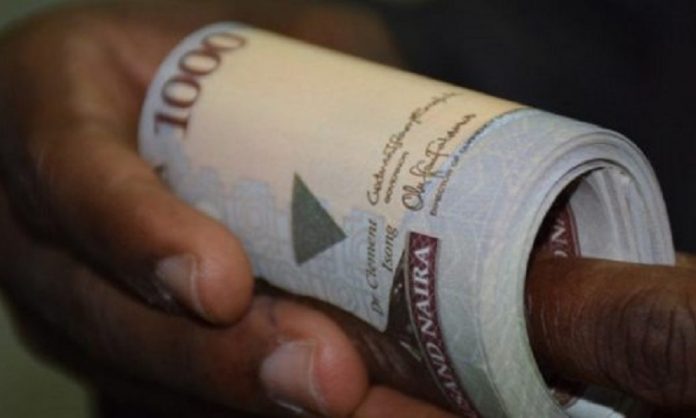The Nigerian local currency, naira, weakened to N415.07 a dollar on Monday following a disequilibrium position resulting from high demand and lower supply. Foreign currencies inflow into Nigeria tumbles in the first half, a Central Bank report says.
The International Monetary Fund has recently asked the Central Bank to adopt a unified market clearing FX rate to attract foreign investors. In the first half of 2021, total capital inflow into the Nigerian economy printed at $3.4 billion, 80% below $17.1 billion received in the comparable period in 2020 – despite the pandemic.
Analysts said foreign investors are confused about exchange rates that apply to transactions, thus keeping away from the local economy – resulting in persistent capital importation drop. A CBN report for the mid-year of 2021 shows that capital importation dropped 80% as foreign investors’ cutoff dollar inflow into Nigeria.
On the remittance side, the IMF report hinted that Nigeria gets better dollar inflow from Diaspora, the November report shows.
At the Investors and Exporters’ FX market on Monday, Naira depreciated by 0.16 per cent as the dollar was quoted at N415.07 against the last close of N414.40. Most participants maintained bids between N405.00 and N445.75 per dollar, FSDH Capital said in a note.
The monetary policy committee of the Central Bank is expected to factor Naira position in the FX battlefield where the local currency has suffered major setbacks in the FX markets– the last meeting for 2021.
Since the last policy meeting in September, the exchange rate remained relatively range-bound at N410.00 N415.00 a dollar at the Investors window, Cordros Capital note shows but touched the N420.00 level on the 14th and 15th October when it traded at N422.07/$ apiece.
Nigeria’s FX reserve declined for the third consecutive week as the gross reserves closed lower by $102.58 million to $41.41 billion. In a move to reduce the backlog, the CBN began selling $25.00 million to the foreign portfolio investors (FPIs) at the spot and forward market at the rate of N444.00 and N453.00 respectively, according to Cordros Capital note.
Analysts explained that the preceding suggests the CBN has commenced clearing the FX demand backlogs given the substantial inflows from IMF’s SDR and the Eurobond issuance.
Last week, Nigerian local currency appreciated by 6.8% to N535.00 to a dollar as of 12th November compared with N571.50 at the last policy meeting in September. Analysts attributed the development to reduced activities from currency speculators, leading to offloading of the greenback given expectations that the CBN will improve FX intervention.
Capital inflow to Nigeria declined 80 per cent in two years, according to Central Bank of Nigeria reports. It stated in the report that total capital inflow to Nigeria fell from $17.1 billion in July 2019 to $3.4 billion in July 2021.
The nation had seen a $17.1 billion capital inflow between January and July 2019. However, between January and July 2021, the country recorded only $3.4 billion as capital inflow, indicating a fall of 80 per cent.













